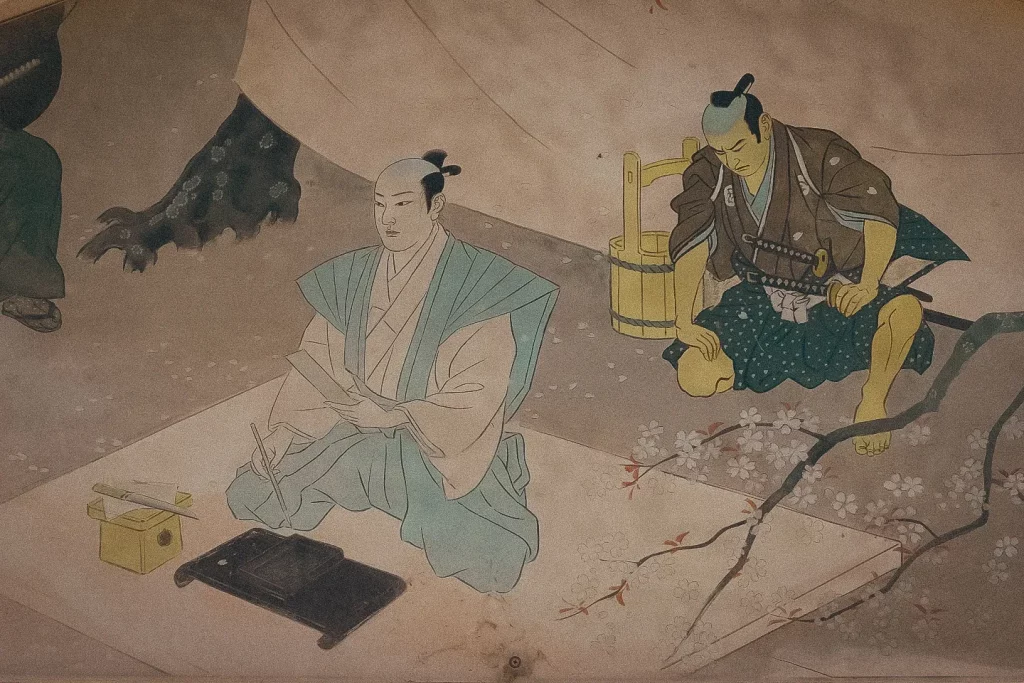Miyabi
雅


Miyabi, a cherished Japanese aesthetic ideal, although somewhat overshadowed by the prominence of Iki and Wabi-sabi, holds a unique place in the cultural tapestry. In contemporary Japanese parlance, it is often translated as “elegance,” “refinement,” or “courtliness,” and at times, even as a “sweet loved one.”
This lofty ideal, encapsulated in the concept of Miyabi, demanded the elimination of absurdity and vulgarity, advocating instead for the meticulous refinement of manners, diction, and emotions.
Its ultimate aim was to smooth away all rough edges and coarseness, giving birth to the highest form of grace. It embodied an exquisite sensitivity to beauty that defined the Heian era, a period marked by its deep appreciation for aesthetics.
Miyabi shares an intimate connection with the notion of Mono no aware, a poignant awareness of the transience of all things. Consequently, it was believed that objects or moments in decline possessed a profound sense of Miyabi. Take, for instance, the solitary cherry tree, shedding its blossoms and baring its bare branches—an embodiment of not just mono no aware but also the essence of Miyabi in its graceful transformation.
Those who upheld the tenets of Miyabi sought to banish the crude and unsophisticated elements prevalent in the artworks of their time, as exemplified in the Man’yōshū, the oldest extant collection of Japanese poetry. This anthology featured verses from people of diverse backgrounds, some starkly contrasting with the refined sensibilities of Miyabi. For instance, a poem in the collection likened a woman’s hair to snail innards—a metaphor that Miyabi staunchly rejected.


Furthermore, appreciation of Miyabi became a defining marker of class distinctions, reserved for the upper echelons of society, the courtiers, who were believed to possess the discerning eye to truly comprehend its nuances.
Miyabi’s influence extended beyond mere aesthetics; it constrained the very creation of art and poetry.
While it championed the avoidance of rustic and crude expressions, it inadvertently constrained traditionally trained courtiers from expressing genuine emotions in their artistic endeavors, reflecting the intricate interplay between culture, class, and creativity.
